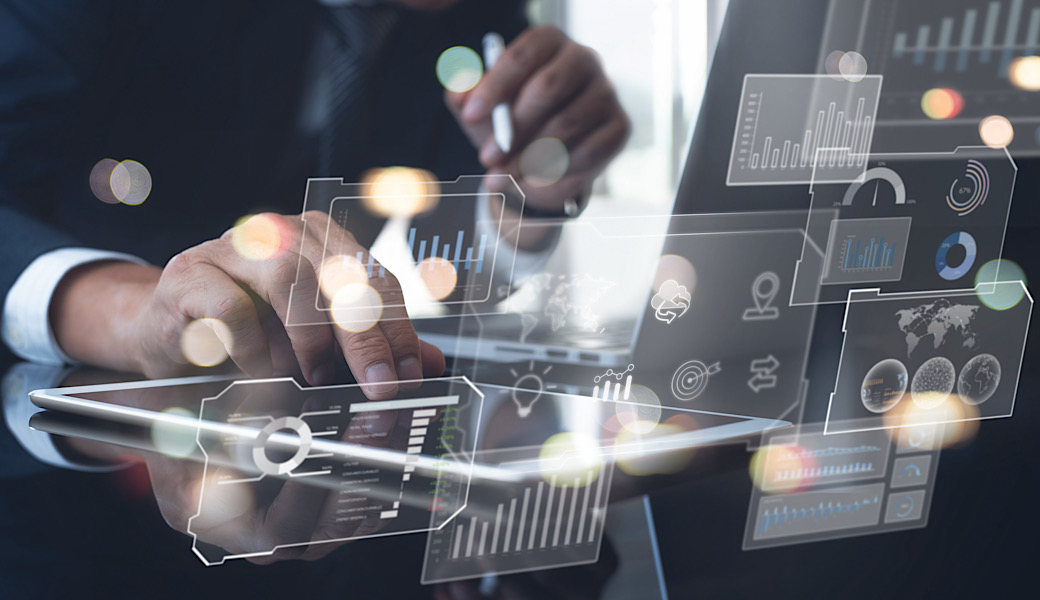As we approach 2025, procurement is poised for a significant technological evolution. Innovations in artificial intelligence (AI), blockchain, and the Internet of Things (IoT) are set to reshape the procurement landscape, making it more strategic, efficient, and integrated. These advancements will enable organizations to stay competitive, navigate complex markets, and drive innovation. Below is a breakdown of key technology trends that will define procurement in 2025.
Artificial Intelligence and Machine Learning Lead the Way
By 2025, Artificial Intelligence (AI) and Machine Learning (ML) will be at the heart of procurement operations. These technologies will allow procurement teams to analyze vast data sets in real-time, delivering insights that improve decision-making, streamline processes, and drive strategic initiatives. AI will shift from a tool for cost-cutting to a driver of more dynamic, data-driven procurement strategies.
Key Benefits:
Enhanced Decision-Making: AI-powered analytics will enable procurement professionals to forecast market trends with greater accuracy, facilitating stronger procurement strategies and more informed decisions.
Automation: Routine procurement tasks, such as invoice processing, supplier management, and contract renewals, will become fully automated, freeing up teams to focus on higher-level activities like supplier relationship management and innovation.
AI will continue to push procurement beyond its traditional role, making it a vital contributor to strategic business growth.
Blockchain Strengthens Transparency and Trust
Blockchain technology is set to revolutionize procurement processes by 2025, offering a secure, transparent, and tamper-proof method for managing supply chains. The decentralized nature of blockchain allows for greater security in verifying contracts, tracking goods, and ensuring regulatory compliance. As a result, blockchain will minimize fraud, enhance supplier accountability, and improve the integrity of procurement operations.
Key Benefits:
Improved Trust: Blockchain creates an immutable record of every transaction, fostering greater trust between buyers and suppliers. This transparency ensures that all stakeholders can verify the authenticity of goods and the terms of contracts.
Supply Chain Visibility: Blockchain technology will provide real-time tracking and traceability, enabling businesses to monitor the movement of goods, identify potential disruptions, and resolve issues swiftly. This level of visibility is especially crucial in industries with complex global supply chains.
With blockchain, organizations will be better equipped to manage risk, ensure compliance, and build stronger, more reliable supply chains.
Predictive Procurement Becomes Essential
Predictive procurement, driven by AI and advanced analytics, will become an integral component of procurement strategies by 2025. By leveraging historical data, market trends, and AI-generated predictions, businesses will be able to optimize their procurement processes—anticipating supply chain disruptions, managing inventory levels, and reducing costs.
Key Benefits:
Proactive Risk Management: Predictive analytics will empower companies to anticipate potential risks, from supplier disruptions to price fluctuations. By identifying risks early, businesses can take preventive measures to mitigate their impact and maintain supply chain stability.
Cost Optimization: Predictive procurement will allow businesses to forecast demand more accurately, minimizing inventory excess, reducing waste, and ensuring that procurement budgets are optimized.
This shift toward predictive procurement will enable companies to transition from reactive problem-solving to proactive planning, improving overall efficiency and profitability.
Smart Contracts Streamline Processes
Smart contracts, powered by blockchain technology, will become mainstream tools in procurement by 2025. These self-executing contracts automate contract management by enforcing terms and payments without the need for intermediaries. Smart contracts will streamline procurement processes, reducing delays, minimizing human error, and lowering transaction costs.
Key Benefits:
Increased Efficiency: Automating the execution of contracts will significantly reduce the time required to finalize agreements, payments, and contract renewals. Procurement teams will benefit from streamlined workflows and improved speed in negotiating and closing deals.
Cost Savings: Smart contracts eliminate the need for manual oversight and third-party intermediaries, reducing administrative costs and enhancing overall process efficiency.
As smart contracts become more widespread, procurement functions will operate more efficiently, reducing bottlenecks and ensuring smoother, faster transactions.
IoT Integration Transforms Procurement
The Internet of Things (IoT) will play a transformative role in procurement, particularly in industries reliant on inventory management, logistics, and physical assets. By 2025, IoT devices will provide real-time data on asset location, condition, and usage, empowering procurement teams to make more informed decisions. This integration will improve inventory management, reduce downtime, and enhance supplier performance, leading to more efficient procurement operations.
Key Benefits:
Real-Time Monitoring: IoT sensors will allow businesses to monitor inventory levels, asset performance, and supply chain conditions in real-time, leading to more accurate and timely procurement decisions.
Improved Supplier Collaboration: IoT data will enable procurement teams to communicate more effectively with suppliers, ensuring faster issue resolution and better overall supplier performance. With real-time insights into asset conditions and demand trends, suppliers can adjust production or shipping schedules to align with actual business needs.
IoT integration will lead to more agile procurement processes, enabling businesses to adapt quickly to changes in demand or supply chain conditions.
Preparing for the Future of Procurement
As procurement technology evolves, the function will shift from a transactional role to a strategic enabler of business growth. Companies that embrace these trends—AI, blockchain, predictive procurement, smart contracts, and IoT—will be well-positioned to navigate the complexities of global supply chains, foster innovation, and maintain their competitive edge.
The future of procurement is bright, with technology playing a central role in driving efficiency, innovation, and strategic value. Businesses that invest in these emerging technologies will not only streamline their operations but also unlock new opportunities for growth and profitability.
As 2025 approaches, procurement technology is set to revolutionize the way organizations manage their supply chains. Groves & Company is ready to guide your business through this technological transformation. Whether you’re looking to implement AI-driven analytics, integrate blockchain for supply chain transparency, or leverage IoT for real-time monitoring, we have the expertise to support your journey. Contact us today to explore how we can help your organization thrive in 2025 and beyond with cutting-edge procurement technologies.


